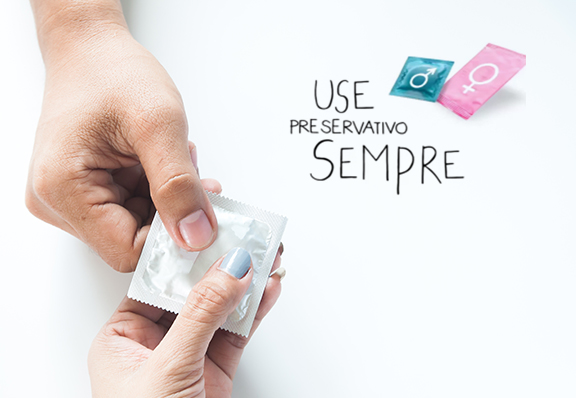The General Directorate of Health marks International Condom Day with a campaign to encourage the consistent use of condoms, through dissemination on social networks, websites and free distribution of condoms to the population.
This initiative is carried out in conjunction with the 10 signatory cities of the Paris Declaration, which pledged to accelerate, by 2030, their local response to HIV and hepatitis virus infection, with a view to eliminating these infections as public health problems .
International Condom Day has been celebrated on February 13th since 2008, at the initiative of the AIDS Health Care Foundation, with the aim of highlighting the importance of condoms as a measure to prevent sexually transmitted infections and unwanted pregnancies.
In this context, the Directorate-General for Health has marked the occasion to alert the Portuguese population to the proper use of condoms, through the National Health Programs in the areas of HIV and AIDS and Viral Hepatitis, of the Sexual Health Division, Reproductive, Children and Youth, and the Literacy, Health and Welfare Division.
During 2019, and according to the notifications made until 30 June last year, 778 new cases of HIV infection were diagnosed in Portugal, all registered in individuals aged 15 years and over.
In about 65% of cases, the age at diagnosis was between 25 and 49 years old, while 24,2% were diagnosed in individuals aged 50 years or over. In 97,3% of cases, transmission occurred through sexual intercourse.
In 2020, the program for the free distribution of preventive and informational materials allowed the distribution of around three million male and female condoms and eight hundred thousand packs of lubricating gel, through non-governmental organizations, educational establishments, health centers, hospitals, prisons, etc.
"This distribution represents an effort to maintain the response in terms of prevention, despite a reduction in the resources distributed in this year marked by the COVID-19 pandemic, which naturally had consequences on the response of services and
structures that normally ensure the distribution of preventive materials to different populations», admits the DGS.
However, defends this body, "it is therefore important to continue to invest in free and facilitated access to preventive means, such as condoms, even in the context of a pandemic, due to their high effectiveness in preventing sexually transmitted infections and unwanted pregnancies'.
For that, it is imperative to rethink new ways of approaching populations that allow preventive means to reach the people who need them, in strict compliance with the security and protection measures that concern COVID-19”, concludes the DGS.




















Comments